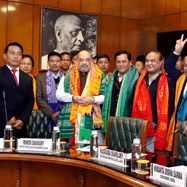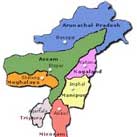Ordering Violence: Explaining Armed Group-State Relations from Conflict to Cooperation
In 2022, the ceasefire between the Government of India and the National Socialist Council of Nagalim–Isak-Muivah (NSCN–IM) entered its 25th year. While the ceasefire has greatly reduced violence between the group and security forces, it has by no means ended it.
- Alex Waterman |
- September 2022 |







